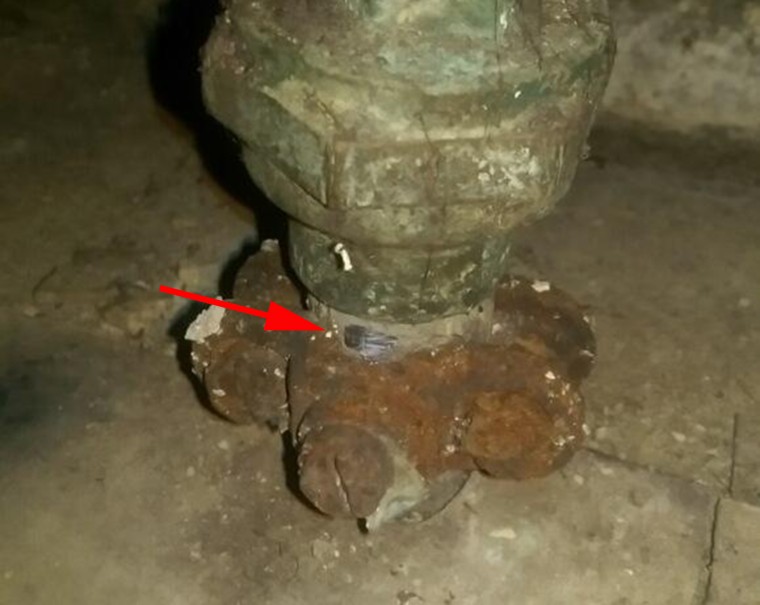A day after NBC News reported that none of the corroded lead pipes at the core of the Flint water crisis have been removed, Michigan Gov. Rick Snyder admitted he has no immediate plans to replace them.
NBC News correspondent Stephanie Gosk repeatedly pressed the embattled governor Wednesday on how he expects to win the trust of Flint's residents while the pipes that poisoned the water supply are still being used.
"There absolutely is a trust issue," Snyder conceded.
But he said that removing the pipes — which experts have told NBC News is the only permanent solution to the lead problem — isn't on his "short-term" agenda.
"It's a lot of work to take out pipes, to redo all of the infrastructure, that's a whole planning process," Snyder said at a press conference.
Instead, he said, the state is focusing on using phosphates in the water to coat the corroded pipes and keep the lead from leaching out.
Gosk asked him, "If you don't replace those pipes, a lot of people tell us they're simply not going to drink the water no matter how many assurance they're getting. How do you address that right now?"
The governor said the state would be using "third-party expertise" to assess whether the phosphates were working and address public fears.
There are up to 25,000 service lines containing lead that run between water mains and homes in Flint. Starting in April 2014, water from the Flint River corroded the pipes, leaching toxins into the tap water.
Related: What Emergency? Lead Pipes Not Being Removed in Flint
The city is no longer using the river water, but the damaged pipes are still a threat and the entire city is relying on bottled and filtered water for drinking, cooking and even bathing in some cases.
Flint Mayor Karen Weaver told MSNBC on Wednesday morning that pipe replacement is "the first thing" the government needs to address.
"That’s what the citizens of Flint deserve," she said. "Nobody’s going to trust the water if we don’t do that."
But Snyder said the state's not ready for that.
"A lot of work is being done to even understand where the lead service lines even are," he said.

There is no firm price tag for replacing lead service lines — the city's portion and the portion the homeowners are technically responsible for — and home plumbing that has soaked up lead or contains lead solder.
Many residents of Flint, where more than 40 percent of households are below the poverty line — say they don't have the money to do the work themselves.
Related: 'Nobody Cares': Flint Family Says Lead Pipes Must Go
Union plumbers who are available to rip out the lines are instead going door-to-door to install water filters — a stopgap measure — on a volunteer basis.
"We need to remove all the lead," University of Michigan Professor Martin Kaufman, who is helping the city create a database of homes with the dangerous pipes, told NBC News.
"It's got to be done now."
